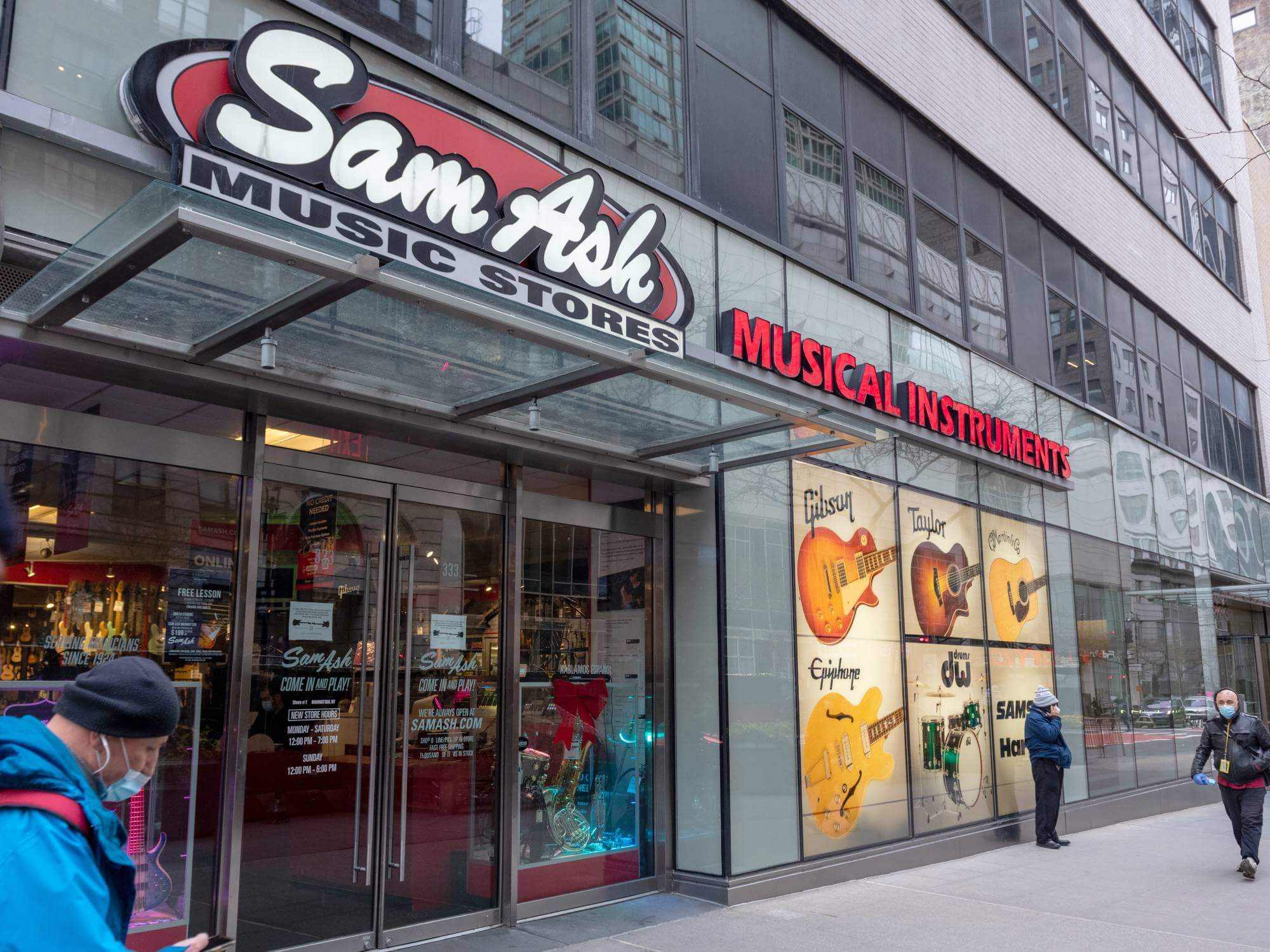Related Tags
“Sweetwater generates revenue out of two distribution centres that rival what Guitar Center produces from over 300 stores”: Music Trades editor explains why Sam Ash and other guitar retailers can’t compete with online stores
As online retailer profits continue to soar, brick and mortar guitar stores are struggling to make ends meet.

Credit: Alexi Rosenfeld/Getty Images
In recent years, online shopping has skyrocketed in popularity. In an age of next-day delivery and an endless selection of products available at the click of a button, consumers nowadays will opt to surf the web to hunt for a new guitar. The internet has entirely transformed the way we buy – for better and for worse.
Day by day, physical retail titans are falling. High-street staples like Topshop and Wilko are now a thing of the past. And, with Sam Ash Music’s recent collapse, it’s clear that the music world is also suffering.
The company shared the news via their social media accounts earlier this month, stating: “It is with a heavy heart that we announce that all Sam Ash store locations will begin store closing sales today.”
Music Trades editor Brian T. Majeski has since reflected on Sam Ash Music’s closure. “In late February came the news that Sam Ash Music would be closing 18 of its 45 locations… a month later, the Ash family delivered a bombshell, announcing that they were closing all stores and looking for a buyer to salvage their 100-year-old retail chain,” he writes.
“The collapse of a one-time industry leader underscores just how dramatically the internet has reshaped the retail landscape,” he continues. “With approximately 50% of music products sales now transacted online, generating [enough revenue to break-even] at a brick and mortar store has become difficult, bordering on impossible.”
While brick and mortar stores allow for a hands-on experience for the consumer, many companies now see online stores as a more viable option. An online store removes the burden of rent, bills and in-store employee wages. “Sales-per-employee for the typical online music retailer is over $700,000, versus $220,000 for brick and mortar,” Majeski writes. “Industry leader Sweetwater generates revenue out of two distribution centres that rival what Guitar Center produces from over 300 stores.”
As Majeski notes, the number of physical, in-person boutique guitar specialists has drastically fallen since 1991. “Of the 100 retailers that appeared on our first sales ranking [in 1991], 68 are no longer doing business: 53 of the vanquished closed their doors outright, nine were acquired or merged with another retailer,” he explains.
Even in the UK, music retailers are becoming a thing of the past. In 2010, The Telegraph found that nearly three in four independent record shops in Britain had called it quits since the turn of the millennium.
However, there is a small beacon of hope in the form of Gen Z. Back in January, the Daily Mail reported that the Zoomer generation are embracing physical media. The vinyl-loving youths even saved HMV from administration, and the company now has plans to expand into Europe and Canada.
While Sam Ash Music’s success was once, in Majeski’s words, a “uniquely American success story”, it now feels like a sad sign of the digital takeover. “This isn’t a business for the weak of heart,” Majeski concludes.
Sam Ash is currently holding a closing down sale. Learn more at Sam Ash.
